Abstract
This research attempted to demonstrate some of the conditions that would influence the performance of generalized imitative behaviors in young children. Two experiments were conducted. The results of Exp. I indicated that generalized imitative behaviors can be very durable; only one of three subjects was influenced by a variety of reinforcement-like procedures. Control over the behavior of all three subjects was obtained when a setting event involving the presence or absence of the experimenter was systematically varied. A second test of this variable was carried out in Exp. II. Results showed moderate to strong control over non-reinforced imitations in four preschool children.
Full text
PDF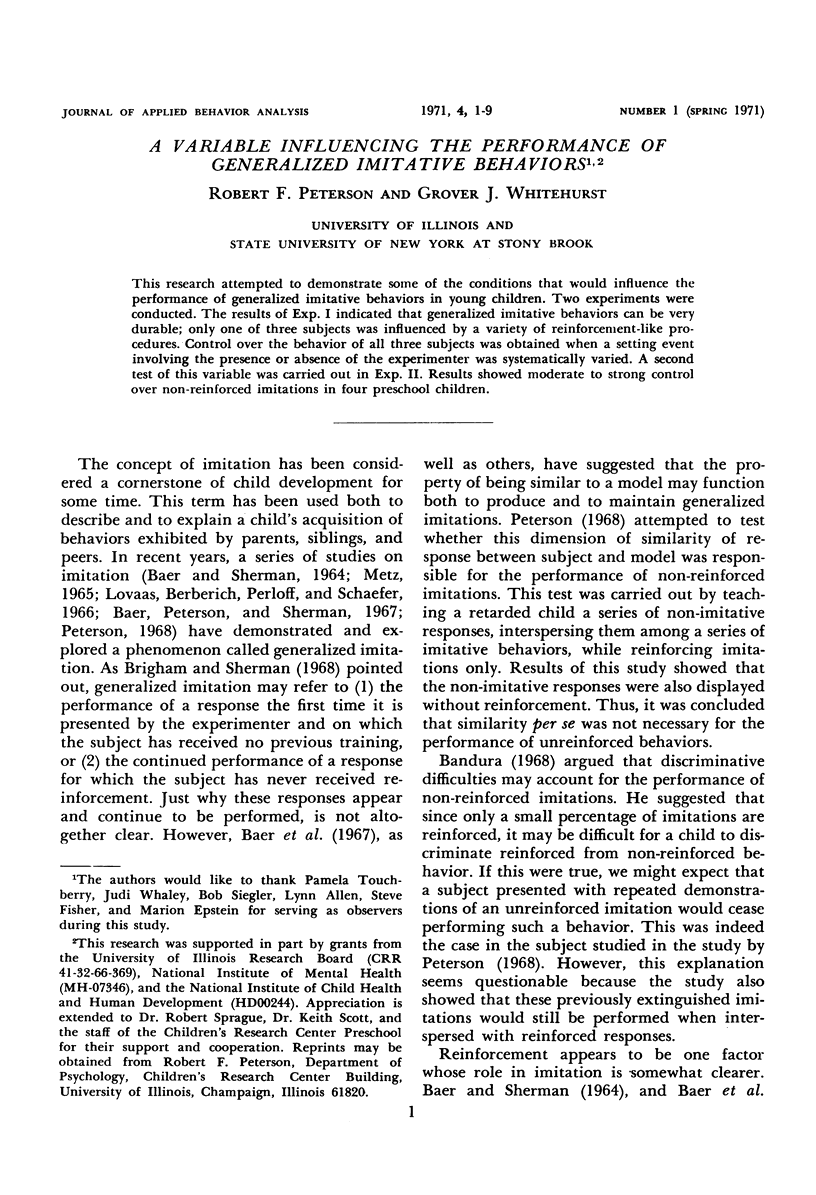
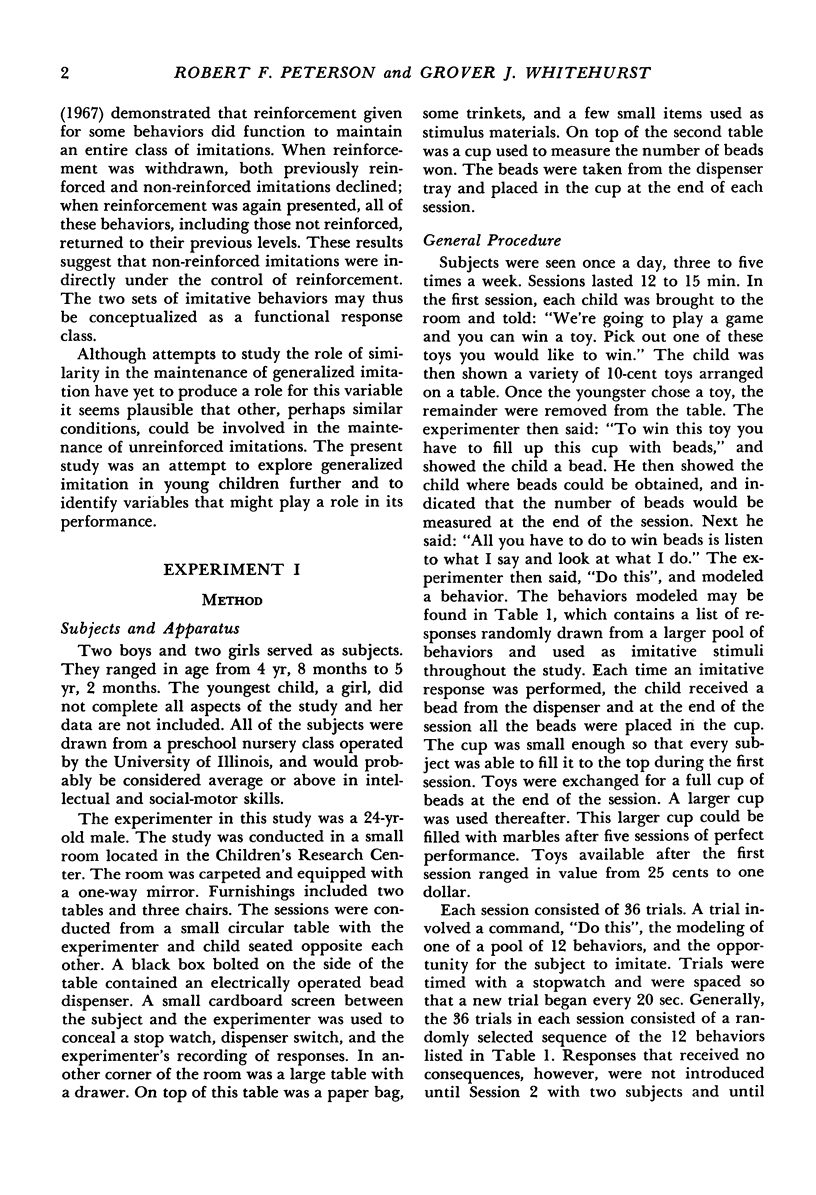
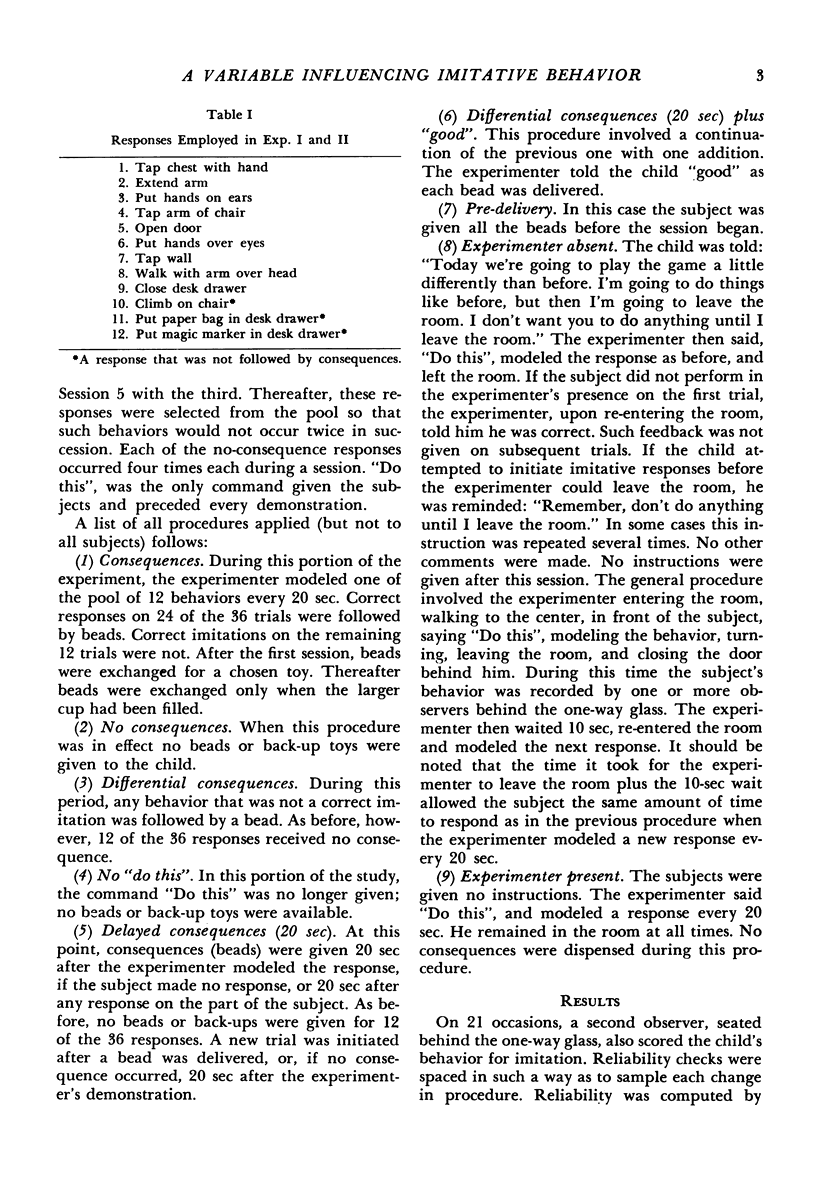
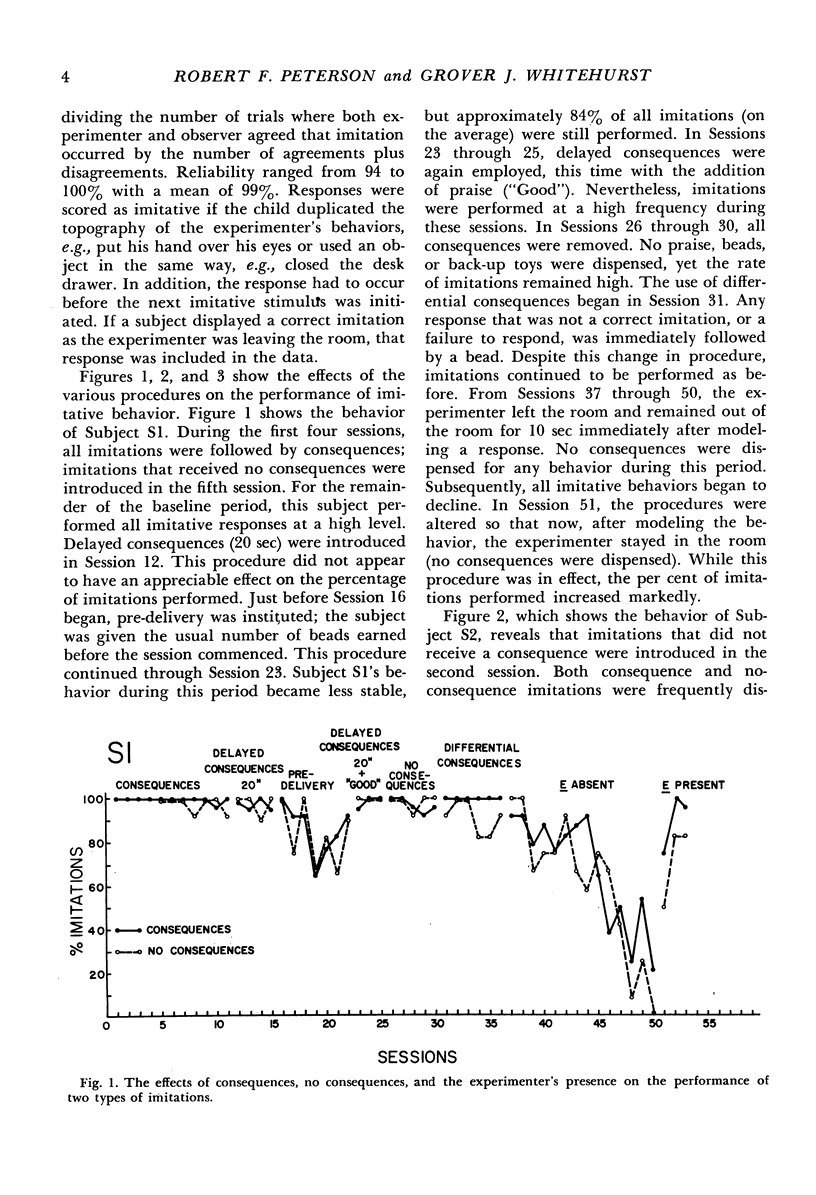
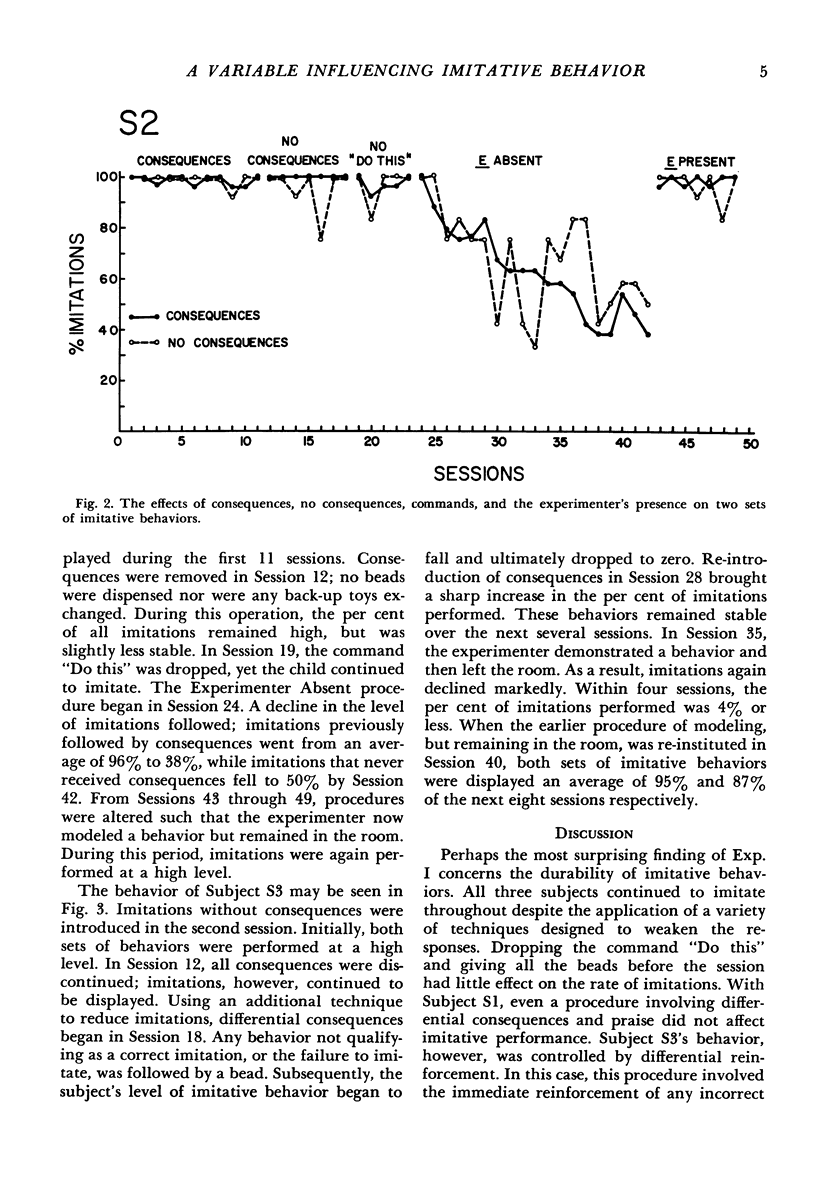
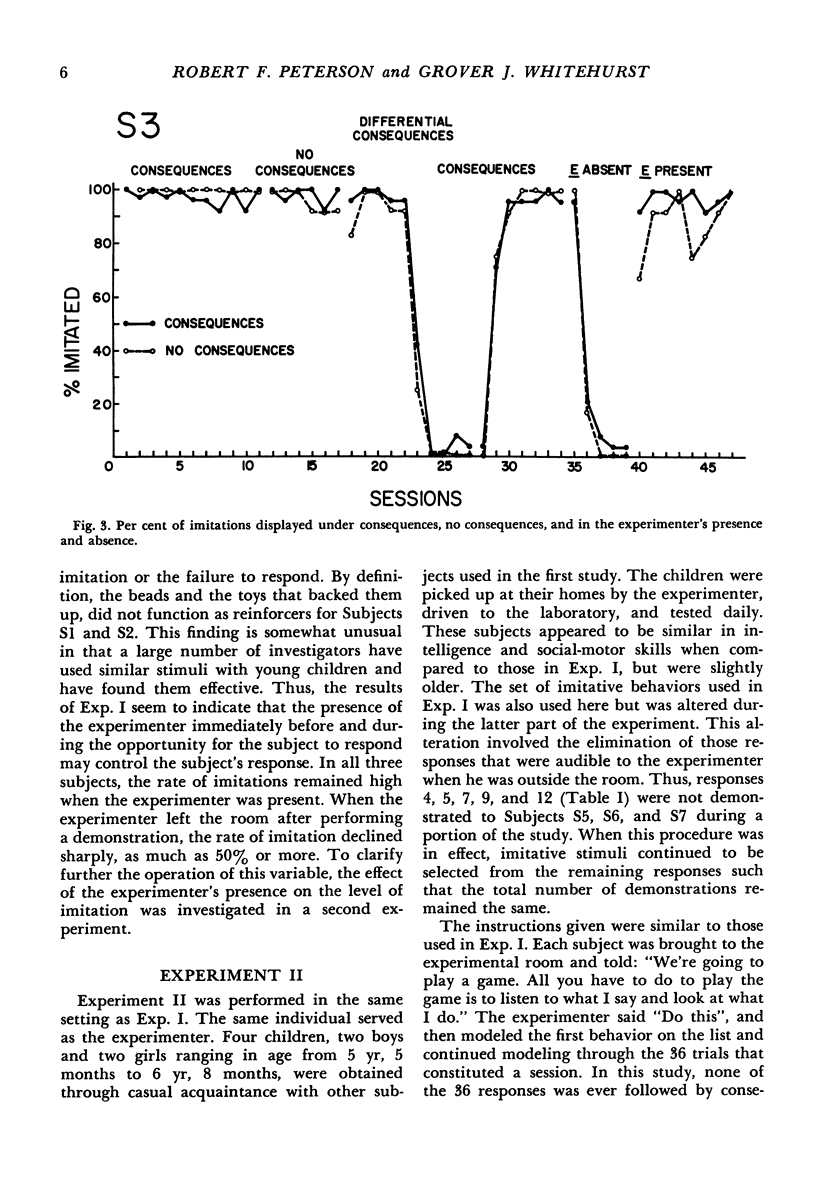
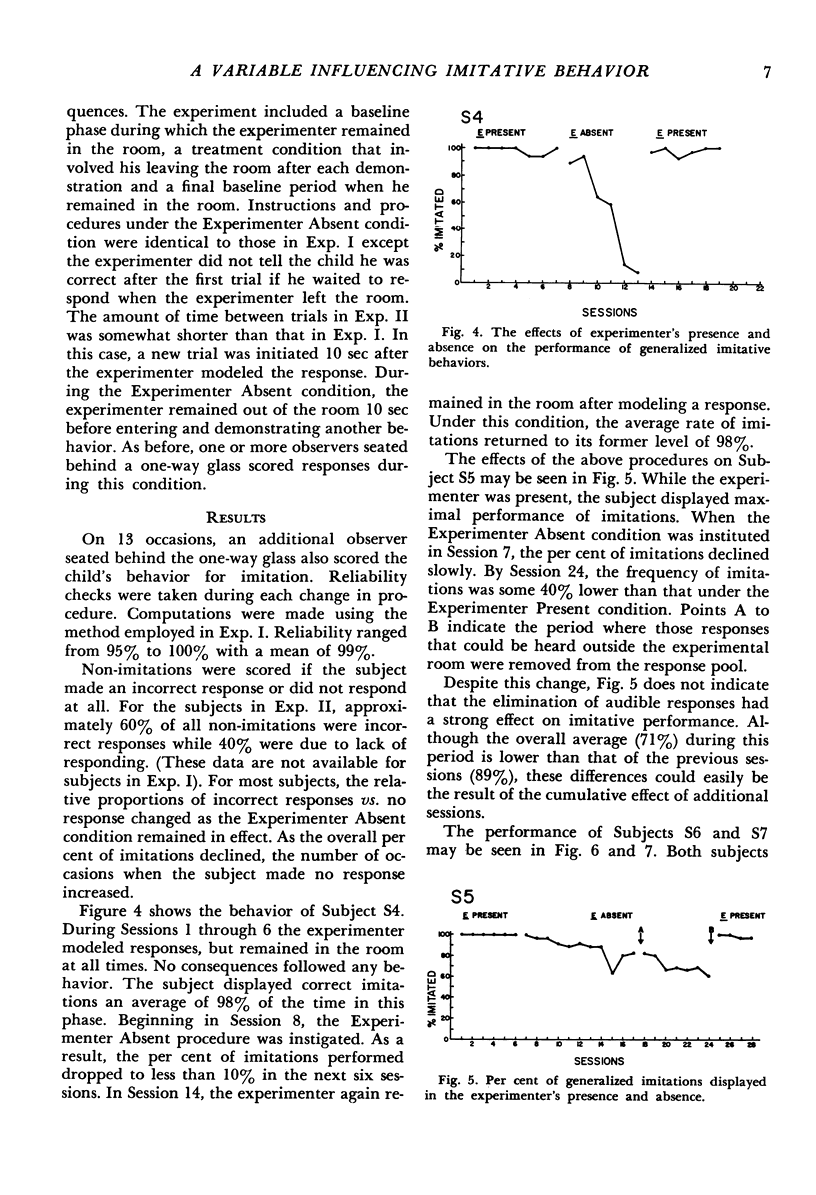
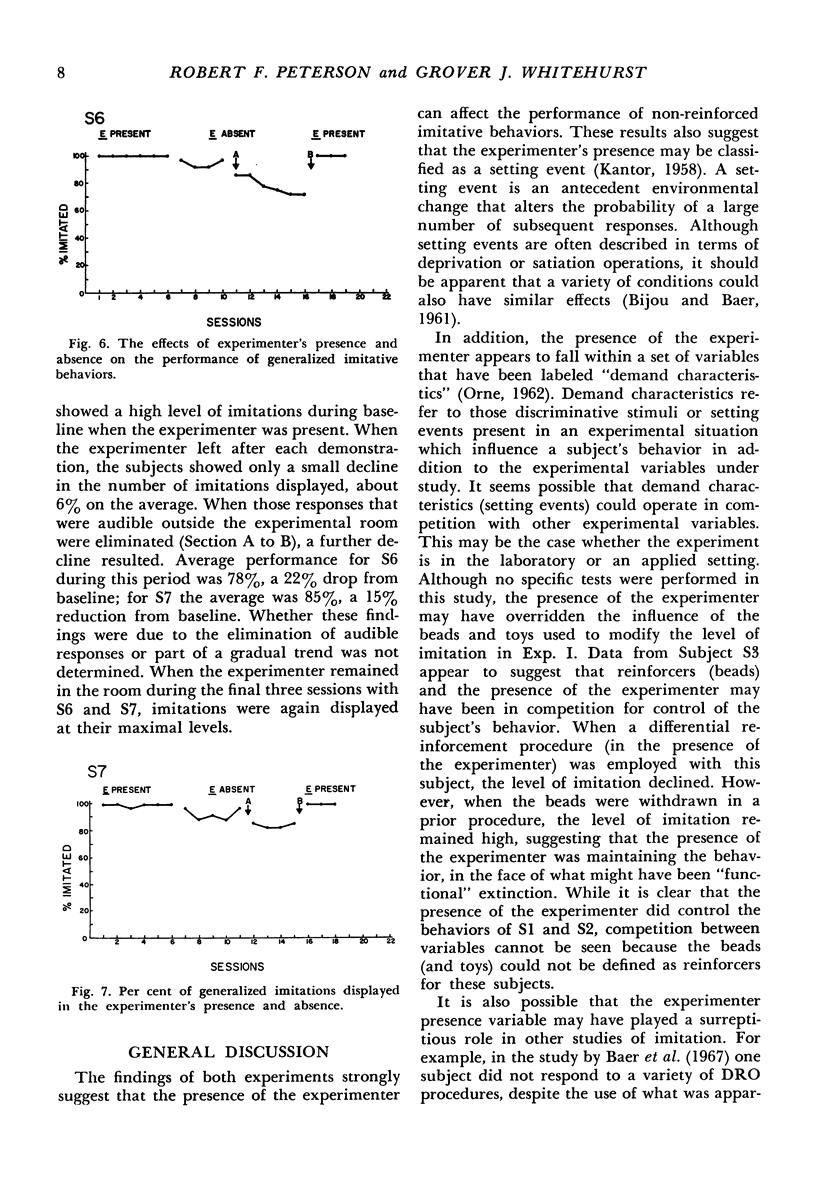
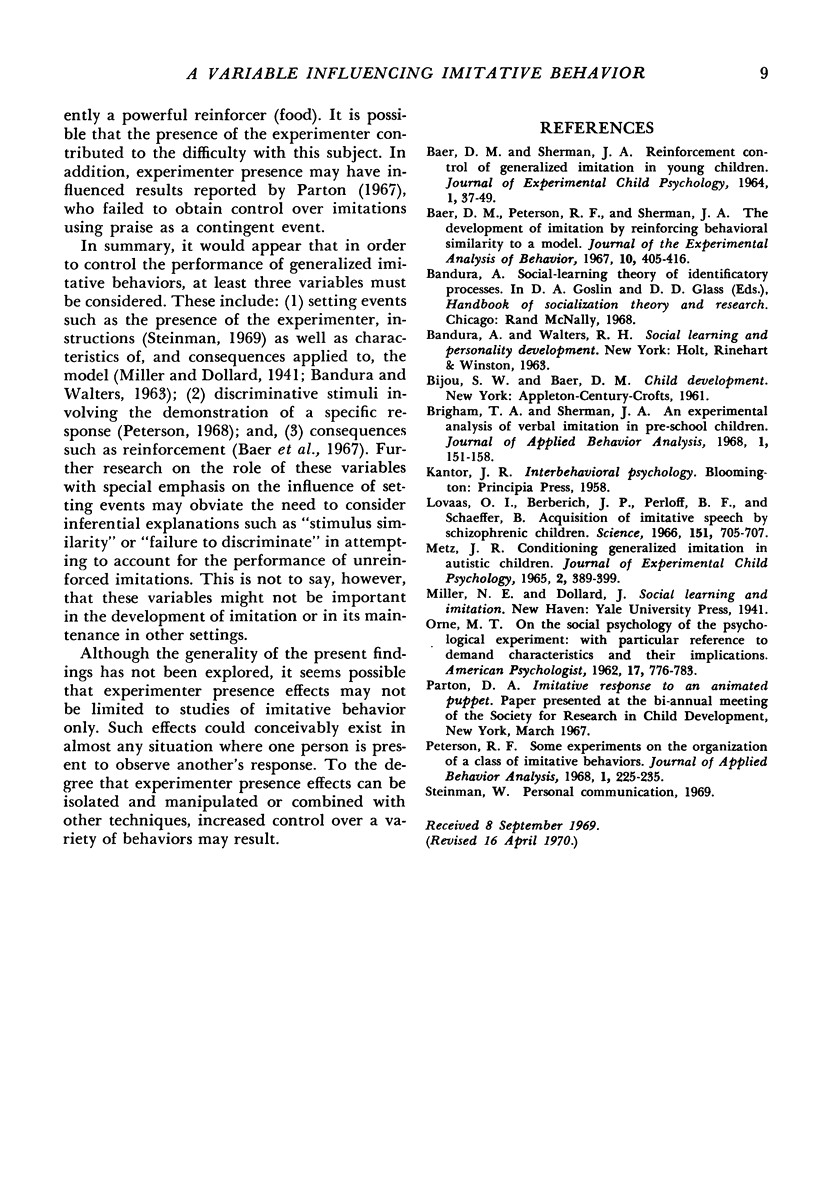
Selected References
These references are in PubMed. This may not be the complete list of references from this article.
- Baer D. M., Peterson R. F., Sherman J. A. The development of imitation by reinforcing behavioral similarity to a model. J Exp Anal Behav. 1967 Sep;10(5):405–416. doi: 10.1901/jeab.1967.10-405. [DOI] [PMC free article] [PubMed] [Google Scholar]
- Brigham T. A., Sherman J. A. An experimental analysis of verbal imitation in preschool children. J Appl Behav Anal. 1968 Summer;1(2):151–158. doi: 10.1901/jaba.1968.1-151. [DOI] [PMC free article] [PubMed] [Google Scholar]
- Lovaas O. I., Berberich J. P., Perloff B. F., Schaeffer B. Acquisition of imitative speech by schizophrenic children. Science. 1966 Feb 11;151(3711):705–707. doi: 10.1126/science.151.3711.705. [DOI] [PubMed] [Google Scholar]
- Peterson R. F. Some experiments on the organization of a class of imitative behaviors. J Appl Behav Anal. 1968 Fall;1(3):225–235. doi: 10.1901/jaba.1968.1-225. [DOI] [PMC free article] [PubMed] [Google Scholar]


